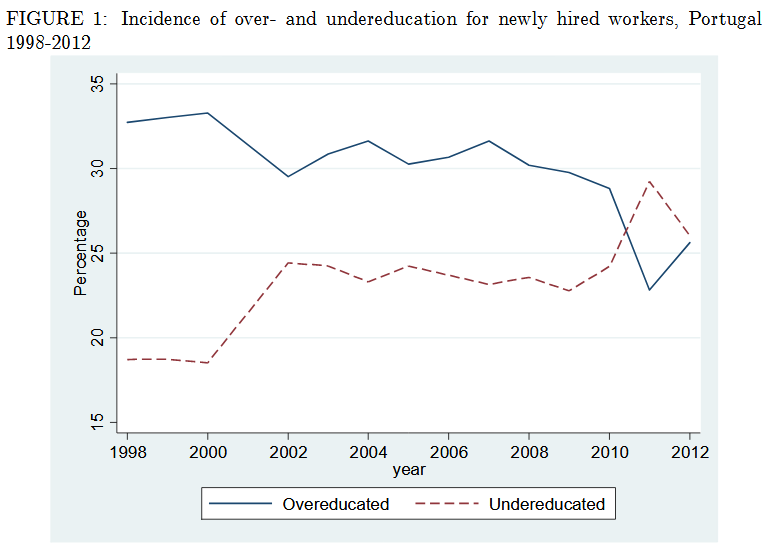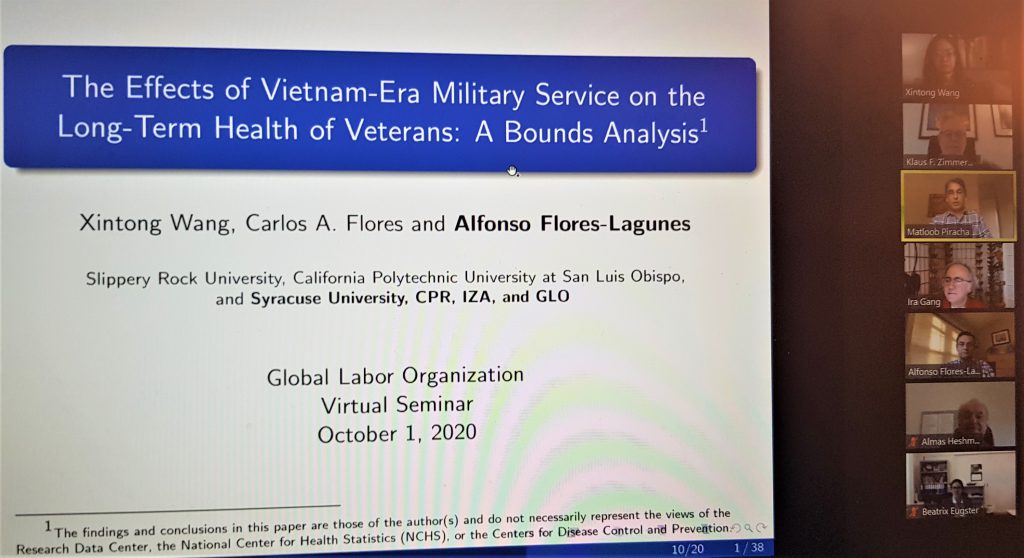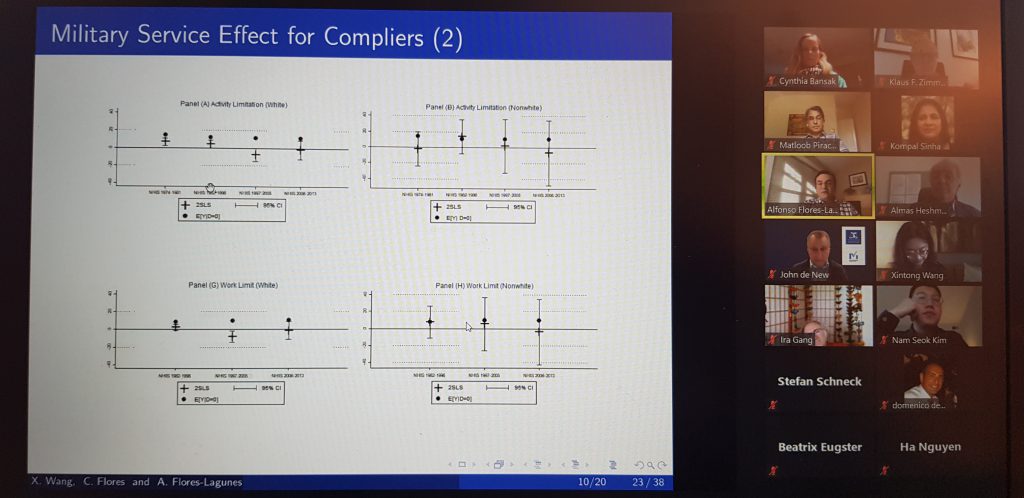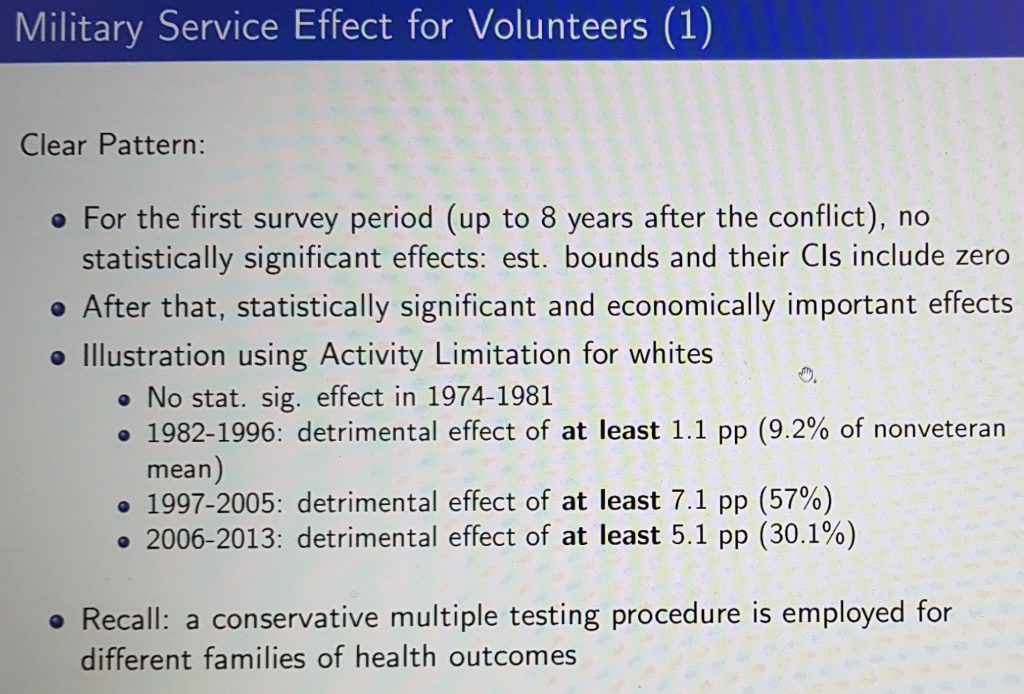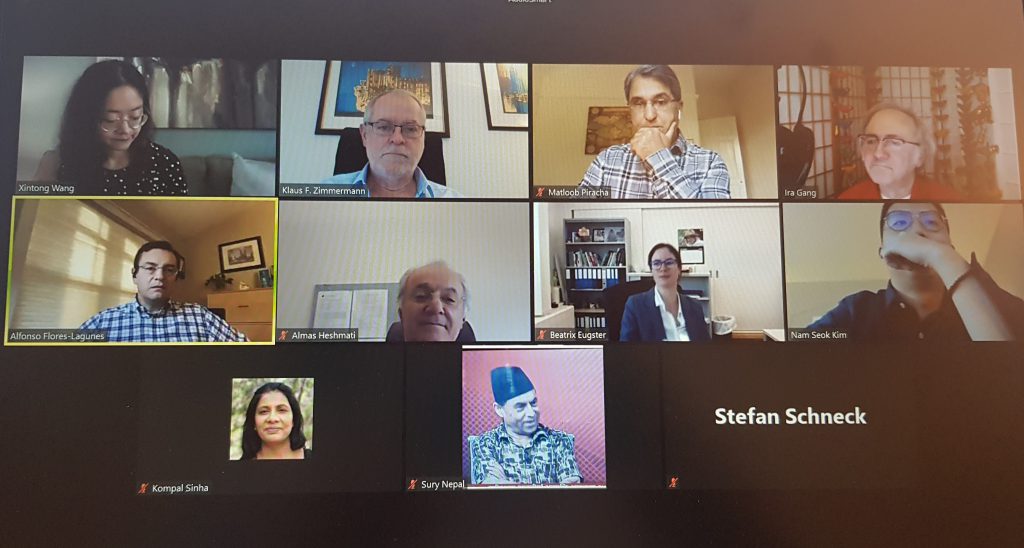A new paper published ONLINE FIRST in the Journal of Population Economics suggests that children may cause unhappiness because of challenging family finances.
Read more in:
Children, unhappiness and family finances
David G. Blanchflower & Andrew E. Clark
Published ONLINE FIRST. Forthcoming: Journal of Population Economics (2021), volume 34. FREE READLINK: https://rdcu.be/b7Z4b
GLO Discussion Paper No. 561 – free Download PDF
GLO Fellows David G. Blanchflower & Andrew E. Clark

Clark 
Blanchflower
Author Abstract: The common finding of a zero or negative correlation between the presence of children and parental well-being continues to generate research interest. We consider international data, including well over one million observations on Europeans from 11 years of Eurobarometer surveys. We first replicate this negative finding, both in the overall data and then for most different marital statuses. Children are expensive: controlling for financial difficulties turns our estimated child coefficients positive. We argue that difficulties paying the bills explain the pattern of existing results by parental education and income and by country income and social support. Last, we underline that not all children are the same, with stepchildren commonly having a more negative correlation with well-being than children from the current relationship.
Access to the newly published complete Volume 33, Issue 4, October 2020.
LEAD ARTICLE OF ISSUE 4:
Yun Qiu, Xi Chen & Wei Shi, Impacts of social and economic factors on the transmission of coronavirus disease 2019 (COVID-19) in China
Journal of Population Economics 33, 1127–1172 (2020). OPEN ACCESS
Over 25K journal downloads & over 70 Google Scholar cites as of October 10, 2020.

Ends;


